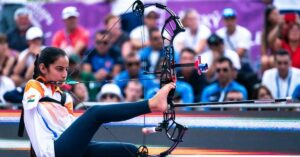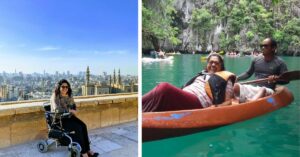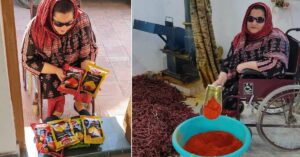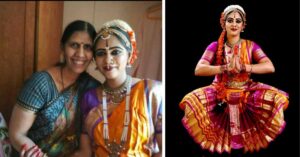When An 80-YO With Multiple Sclerosis Opened Her Home for Kids Every Summer for 3 Decades
The brainchild of Sudha Iyengar, Siddhi Creations was a venture to keep young children engaged fruitfully and joyfully during summer vacations while also picking up on essential life skills. With managing her Multiple Sclerosis condition, Sudha's smile for everyone who enters her home has been winning hearts in Bengaluru for decades.
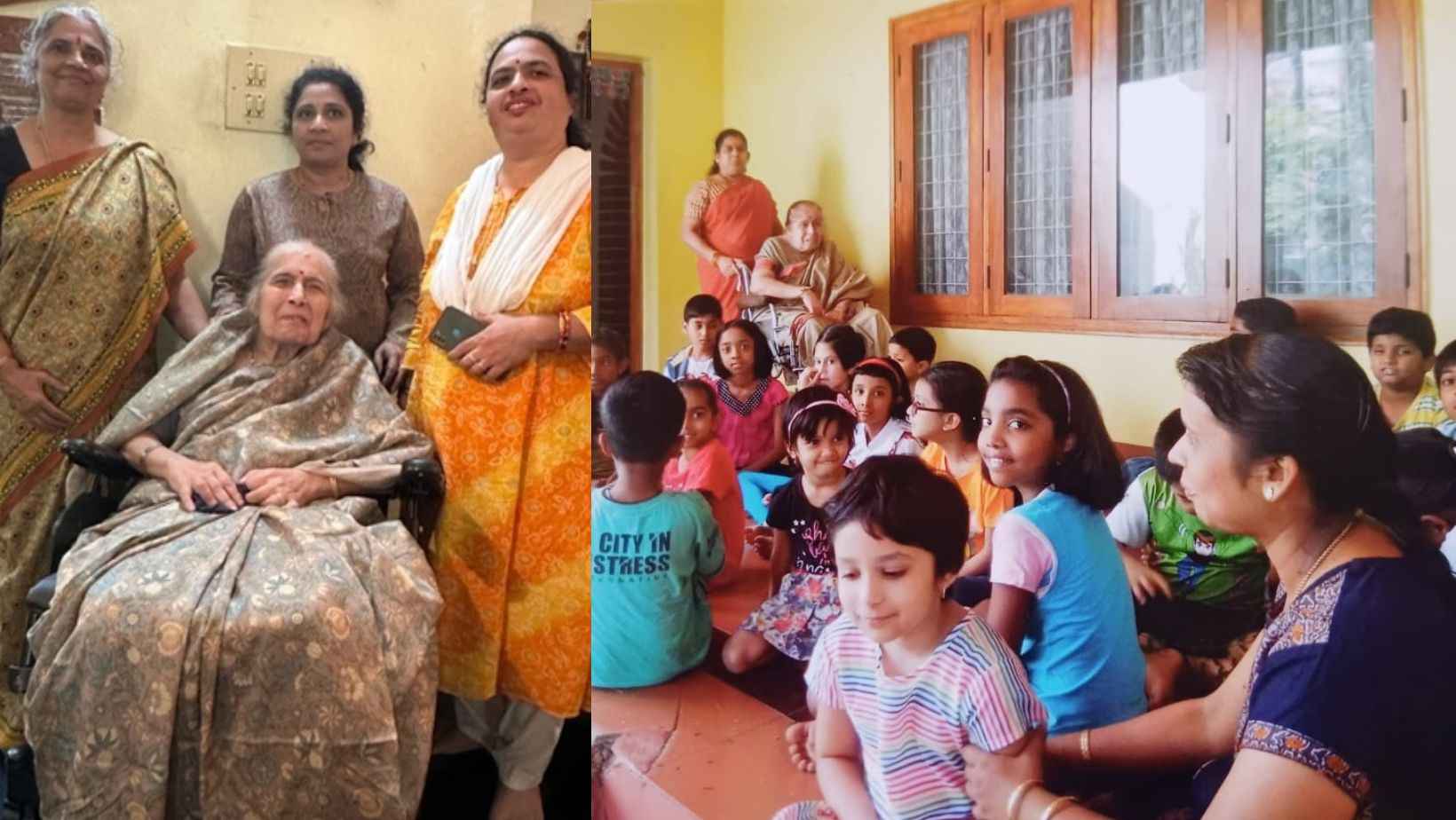
Three decades ago, when hobby summer camps were not that common, Siddhi Creations took birth. The brainchild of Sudha Iyengar, this was a venture to keep young children engaged fruitfully and joyfully during vacations while also picking up on some life skills.
It went on to become a much sought-after exercise and a learning experience for all involved. Having completed more than 25 years, the summer camp in Bengaluru hit its first roadblock with the COVID-19 pandemic in 2020, and later with Sudha’s progressing ailment.
Sudha has been living with Multiple Sclerosis for the last 52 years.
Multiple Sclerosis (MS) is a potentially disabling disease of the brain and spinal cord, as per the Mayo Clinic. Undeterred and enthusiastic, Sudha continued giving back to the community by opening her home to numerous kids and teachers over the years to forge a bond in creativity, friendship and activity.
Seated around Sudha and recollecting the happy times, teachers of the camp, Jayashree Prasad, Srimathi K Singh and Mamatha talk about how important these summer camps were for them.
“Sudha was the fulcrum around which we functioned, we love her,” the teachers say, echoing each other.
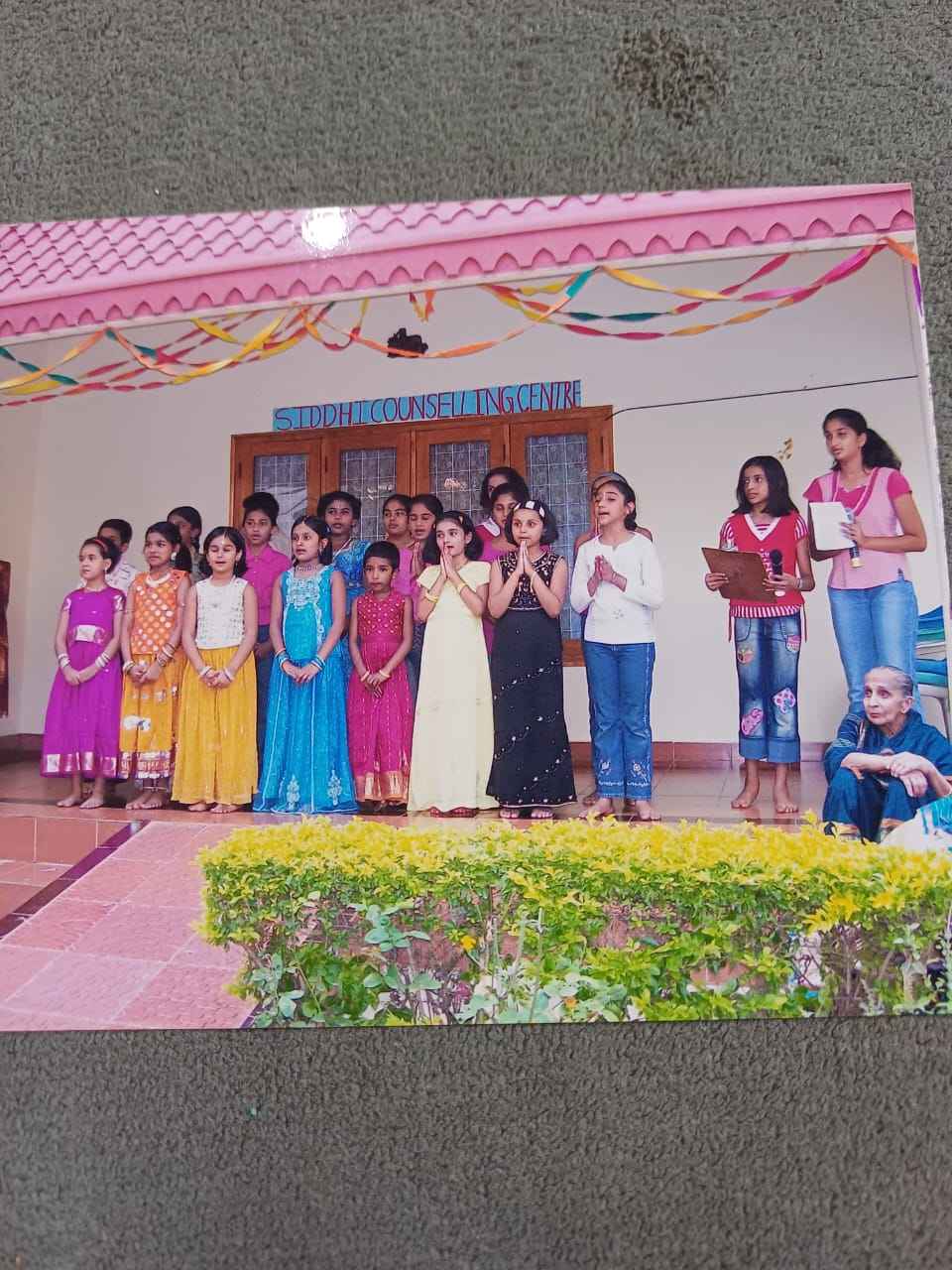
How the summer camp took roots
Hailing from a reputed family and marrying into another, Sudha’s life was good. Her father, K Narayan Iyengar, was the director of Archaeology at the Government Museum in Bengaluru, while her husband, R B Iyengar, was a scientist and close associate of Professor C N R Rao.
The couple lived in Amsterdam where he researched and she was a yoga trainer. But when Sudha was diagnosed with MS, where the degenerative disorder of the nervous system would soon hamper her movements, they decided to move back to India where help would be more easily available for her.
Initially, she taught at the MES Kishore Kendra in Malleswaram but after a few years, as the disease progressed, she started to use a wheelchair and soon, the school became a thing of the past. A friend suggested she create a play area within the house compound, or perhaps a library.
However, the idea soon metamorphosed into a summer camp for children. Located at the couple’s home in Malleswaram, which was thrown open to the children, it was a big hit.
Greatly inspired by Sudha, teachers here worked voluntarily. Many were known to her, some whose children had been tutored by her. Her wisdom, patient listening, counselling, and encouragement to the teachers, proved a big motivating factor for the flock that increased over the years.
“Sudha has been an inspiration for the entire MS community. The consistent work she put into designing the summer workshop for kids through meticulous planning, networking and creativity is no less than a learning opportunity for any business school student. Her positive attitude and demeanour is infectious and you cannot say no to a request from Sudha,” says A Kala, managing committee member, Multiple Sclerosis Society of India (MSSI) of the Karnataka Chapter.
Today, though the camps have been discontinued, the students and teachers do not miss an opportunity to drop in and spend time with their mentor. Around 100 teachers volunteered at the summer camp over the years.
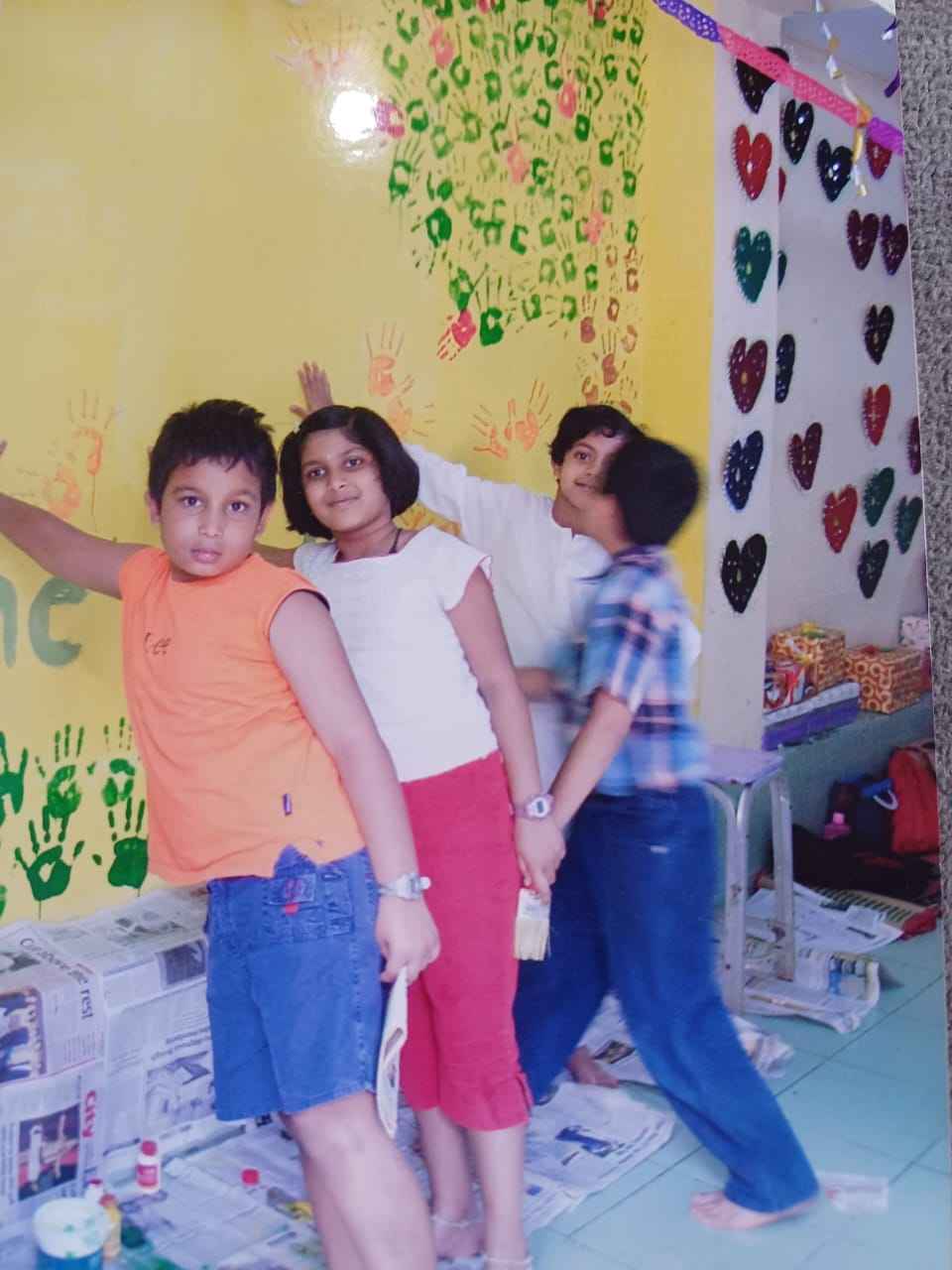
How the days at the summer camp looked like
A day at the camp would see around 30 students, aged between 4 and 12, with teachers and volunteers. The sessions would change every half an hour, and would cover music, art, drama, story-telling and so on. Sometimes experts in various fields would give a talk on their subjects or coach the children in the art of miming, music among other things.
Sudha herself would write plays, often based on mythology, and direct the children in them. Recalling one such play, Jayshree, who was among the first teachers to join, says, “The story revolved around the River Cauvery from its birth in Coorg to joining the sea. The play would weave in the cultures and description of the places en route.”
By noon when it was time to leave, the participants would be treated to a special ‘prasadam’ prepared in the house. Savitri, who has been Sudha’s help for 35 years, also helped in the activity.
Srimathi, one of the teachers, recollects, “I remember uncle (Mr Iyengar) pitching in some times to prepare some special food like Pizza. He would make it from scratch. Once he was preparing aloo bonda and I was helping him roll the potatoes. I remember him telling me to make them big enough so that the kids could have their fill.”
While initially they would collect Rs 25 from each student, in later years the amount was increased to Rs 1000. This was used for materials required for the classes. “Anything remaining after the camp would be donated to NGOs,” adds Mamatha. On Sundays, they would plan some special activity, like going on an excursion to nearby places or a bird-watching trip.
The camps that usually ran for 3-4 weeks were based on a theme every year. This would be decided mostly by Sudha but in consultation with her team of teachers. “Innovative ideas were welcomed, like the Aata Oota Camp, which involved making food without cooking. Also, each team would be named by a food item they did not like. This was done to foster a change of attitude towards the food item. After all, you cannot not like your team!” notes Srimathi.
She had come to enrol her son for the camp but felt drawn to assist a child with disabilities in the camp. Observing her patience and how the child obeyed her, Sudha took it upon herself to talk to Srimathi’s husband. “She asked him to get me admitted into some course and not let my talent go to waste. I went on to do a Montessori course and now I run my own school. I have her picture alongside that of God in my house and I bow to both. She is my living God,” she says, explaining how this turned her life around.
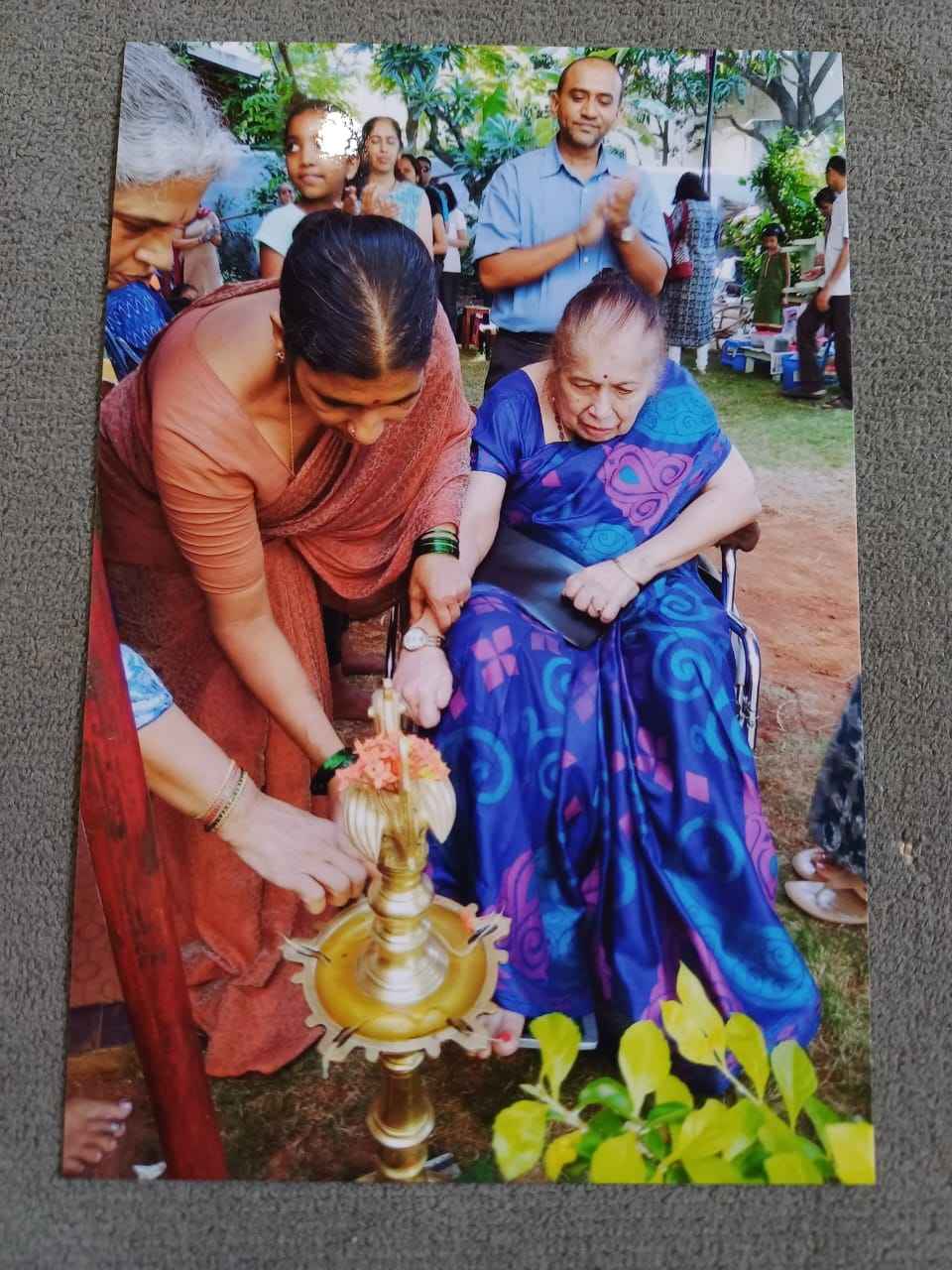
Where practical knowledge was imparted
Children of the camp were taught basic transactional skills like handling money, attending to customers, convincing skills, among others. For this, a ‘sante’ was held where they would sell some items like craft, food, games and greeting cards to parents, teachers and friends who dropped in. The parents, mostly mothers, and grandparents used to pitch in as well.
On the last day of the camp, an exhibition would be organised for the parents where they could see what their children had been doing during the camp. A two-hour performance by the students would be followed with tea and snacks for everyone.
But how did an MS patient manage to do all this? Ask her and Sudha says, “All you need is courage and support from the family.” She is immensely grateful to her husband who took such good care of her down the years, without a single complaint.
Sudha lost her husband to cancer a decade ago. The couple has no children. “Despite all that she has gone through, she has a ready smile for everyone,” says Jayashree.
Mamtha adds, “She taught us to delegate work and encouraged us to think of it as ‘our camp’. We all learnt a lot from this endeavour of hers.”
Today, after almost three decades, some of the students share their fond memories of the summer camps. Manasa recalls, “Always calm and composed with a smiling face, Sudha ma’am was the calm within the storm of kids at Siddhi Creations. She embodies Maria Montessori’s (an Italian educator) words, ‘follow the child’. She gave us the freedom to create and thrive.”
Rajath, who is an advocate today, notes how “Sudha aunty showered the same love on all of us and took care of all details, giving us the lesson of what true leadership was.”
To Vijetha, who works as an HR in an MNC, Siddhi Creations and the camps were “an important part of my childhood, in framing our minds and adding value.” Harshith, another student of the camp says, “The green surroundings, the teachers and Sudha ma’am with a happy face are unforgettable.”
Sudha echoes these feelings when she says that it was the children’s smile and happiness that was the best part of the summer camps. “There was a sense of satisfaction and contentment in running the camps,” smiles the octogenarian from her wheelchair. Her voice is now feeble but the spirit is as strong as ever. There is talk of reviving the camps among the teachers who are excited and ready. If you found our stories insightful, informative, or even just enjoyable, we invite you to consider making a voluntary payment to support the work we do at The Better India. Your contribution helps us continue producing quality content that educates, inspires, and drives positive change. Choose one of the payment options below for your contribution- By paying for the stories you value, you directly contribute to sustaining our efforts focused on making a difference in the world. Together, let’s ensure that impactful stories continue to be told and shared, enriching lives and communities alike. Thank you for your support. Here are some frequently asked questions you might find helpful to know why you are contributing?

Authored by Jayalakshmi Menon. All picture credits go to Sudha Iyengar.
Edited by Padmashree Pande.
This story made me
-
97
-
121
-
89
-
167




